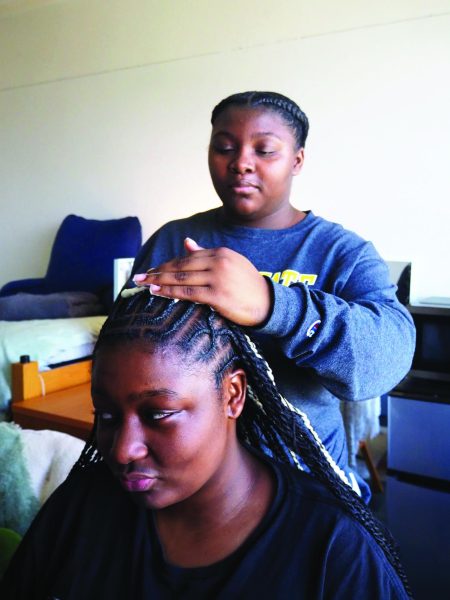Preparing for the courtroom
Criminal justice classes participate in mock trial
April 28, 2016
Two criminal justice classes, Criminal Evidence taught by Andria Cooper and Criminal Investigation taught by Matt McCarthy, came together last Thursday for a mock trial.
These classes have been preparing for this event all semester, and the process of drawing up the framework and characters began last summer.
“I was initially pretty stressed out, but personally I felt it went really well. I had a fun day. It was a really good project, and I enjoyed it,” freshman James Powell said.
Students from both classes made up members of the court of attorneys, witnesses, the defendant and the victim (who despite being “dead” attended the trial).
Powell portrayed a witness, a doctor who had expertise on the medicine found in the murder case.
“Probably my favorite part of the trial is just seeing it all come together. I always like the idea that even I don’t really know every potential piece of information or evidence that is out there,” Cooper said.
The roles of each student were assigned, but once those roles were assigned the students mainly were in control of statements and information.
Cooper acted as the judge and was the only individual in court that was not a WSC student.
The presiding magistrate was retired district judge Robert Ensz.
Students were informed to arrive at the courtroom by 8 a.m., and the mock trial lasted from 9 a.m. until around 4 p.m.
Although the Mock trial tried to simulate a real trial, there were a few differences.
The time limit was different from a real trial, because an actual murder trial could take a week or more instead of a few hours.
Another was that in this trial witnesses were sequestered at the beginning of trial (asked to leave the courtroom and escorted to a separate area) and spent a good amount of time waiting. This wouldn’t happen in a real trial, because witnesses know about the time they would be asked to be in court then be allowed to go about their day.
Some similarities would be how often the jury had to move around and the job of the bailiff escorting witnesses in and out of court.
Overall, Cooper felt like the trial went well, and she received a lot of positive feedback.
“It’s satisfying to me that students were able to take something with them from the class to help them practically in the field. Even if somebody is a witness, because then they could see what it’s like to be sitting on the stand and get that feeling,” Cooper said.








